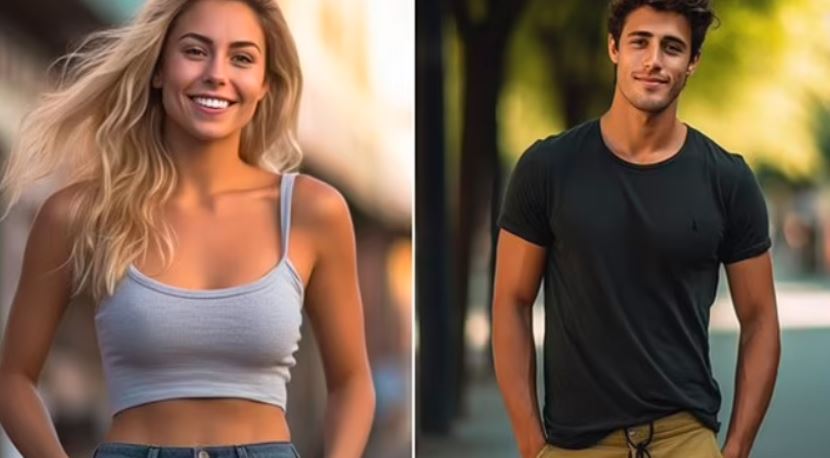Can science determine beauty? Experts have been relying on the Fibonacci number and other theories to calculate the best proportions to define beauty. But do these numbers truly represent beauty the way we see with our eyes?
We’re now bringing in the AI, which is a machine that learns from basically, the internet. The AI studies billions of pictures that are considered as beautiful to many and conjures a picture of the perfect “beautiful people.”
It has impressively created some beautiful, realistic pictures, borderline creepy.

The pictures were generated by ED (eating disorder) group, The Bulimia Project. Researchers put social media pictures as materials for the AI to study the best body proportion, hair color, skin color, and eyes.

The Bulimia Project utilized several picture-generation applications and sites, such as Midjourney and Stable Diffusion.

The result revealed a skewed preference for pale-skinned or white people with blonde hair. Around a third of them are women with brown hair and olive skin. While the majority of men had brown eyes and hair with also olive skin.

But at some point, the machines were generating unrealistic results and almost cartoonish features. Pictures that feed into the growing unhealthy beauty standards.
The Bulimia Project shared the results with the following statement, “In the age of Instagram and Snapchat filters, no one can reasonably achieve the physical standards set by social media.”
“So, why try to meet unrealistic ideals? It’s both mentally and physically healthier to keep body image expectations squarely in the realm of reality.”

The University of Montreal conducted a study with 4000 teenagers aged 12 to 16 and published the results in 2019. The more hours teenagers spend on social media, the more likely they were to show signs of depression. And teenagers are spending more time online than ever.
On the other hand, companies are using more AI-generated images to produce “ideal” images for their business. Levi’s is one of them as the project manager reasoned, “I strongly believe AI has enabled us to realize the true potential of our imagination.”


